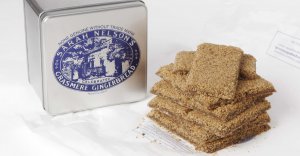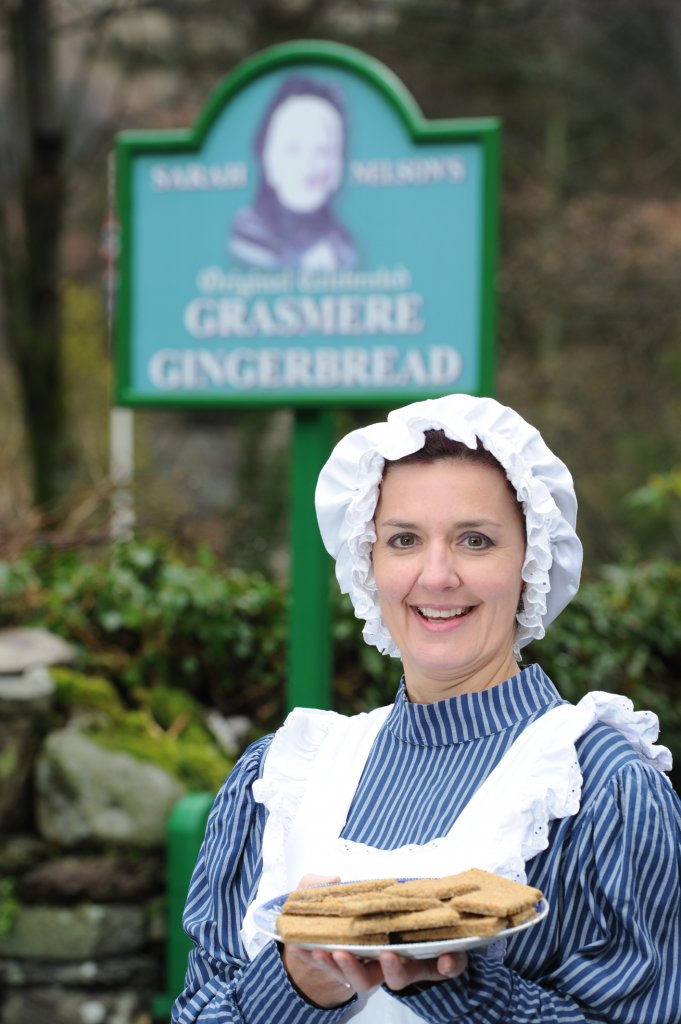Talking Family Business with Grasmere Gingerbread
We believe that family business is still the backbone of the great British economy, which is why we always jump at the chance to help out family businesses.
With this in mind, we wanted to catch up with some well-known family businesses in the UK and none more so than the famous Grasmere Gingerbread!
All it takes is one mention of the Lake District village of Grasmere and the first thing that springs to mind is the delicious gingerbread. We wanted to find out a bit more about the history of the company and what it is like to work within a successful family business, so we got in touch with Joanne Hunter, partner of Grasmere Gingerbread.
To get us started, could you give us a bit of insight into the history of Grasmere Gingerbread?
“The founder, Sarah Nelson, left the business to her 2 great nieces. The German sisters – her only family – who actually my grandad used to be an errand boy for in the village, they were aged and sold the business to a local lady called Daisy Hotson.
Once the business got busier, she went into partnership with Jack and Mary Wilson (my father’s uncle). My mother, who was not married to my Dad at the time, actually worked for them too. Then they sold the business to my parents in 1968. My husband and I took over from them in 2000.”

How has the business adapted to the changing times? Have there been any obstacles that it has had to overcome due to these changes?
“It hasn’t changed much within itself. Being such a traditional and historical business, it would not be right to change things – this is one of our selling points.
We are still very much a labour intensive business and have not automated it. The only adoption really has been to the legislation, that has been required on certain things like labeling, employment – these are all obstacles because, working in a small family business, you don’t have either the knowledge, expertise or resources, so it can be very time consuming and costs the business a lot of money.
The foreign tourist – we must think about how we cater for them over the counter and over the web.
The biggest obstacles in the business are the product and the building, which neither of them can we change!”
Has your business faced any other challenging times over the years? How did you overcome these challenges?
“As the business is very old, historical events have affected the business greatly i.e. the war, strikes in the 70’s – i.e. dock workers holding up ingredients and transportation links and logistics. But in our time, we have had to deal with the petrol strike, lack of visitor numbers to the lakes, 9/11, which again stopped the American visitors and the exchange rate, which stopped many people holidaying in the UK.
Foot and mouth had a big impact and never thought it would get any worse than that until storm Desmond, where we lost the main arterial road through the lakes, stopping the traffic passing through our village and visitor numbers dropped dramatically for 6 months.
How did we handle this? At first, badly, and after several weeks realised we had to move forward instead of just talking about it every night at the kitchen table. One of us dealt with all the negatives and the other, the positive. We took grant funding and took our business to the customers instead, as they would not come to us!”

Joanne Hunter – Grasmere Gingerbread Partner
In your opinion, how does working with family differ from working in a more corporate environment? Would you say it is easier or more difficult to manage?
“It’s much easier working in a corporate environment – it puts a huge amount of strain on family relationships and family life. I came from that background and prefer it.”
What tools or processes would you say are key to running your family business smoothly?
“Networking – it’s important to not feel alone and it’s a good way to find the right people that you need to support your business.
Communication – don’t make it too informal, otherwise, it gets lost in personal stuff. Also, staff think you talk about it all the time too, so they think you know what the other family members know!
Support – have people at the top of the organisations who are strong and can be seen beyond the family relationships and who has the business at heart. Sometimes this can be lost when working too close together.”
If you had to offer 3 top tips for people looking to make a family business a success, what would they be?
“Keep everything formal and legal.
Set aside not work time but family time – that is easier!
Respect – it’s easier to shout, blame and show anger to a family member rather than an employee, and I think employees think that family members have it easier – I think they have it harder. You need to check yourself and say ‘would I speak to an employee like this?’”
What top 3 tips would you give on what NOT to do when trying to run a successful family business?
“The third one above.
Think that the other family member wants the same as you!
Don’t ask what we are having for tea in front of staff!”
Where can people find out more about your business?
If you are looking for a family business accountant to help you manage your accounts, why not get in touch with our specialised family business accountant, Stephen Jolley?




